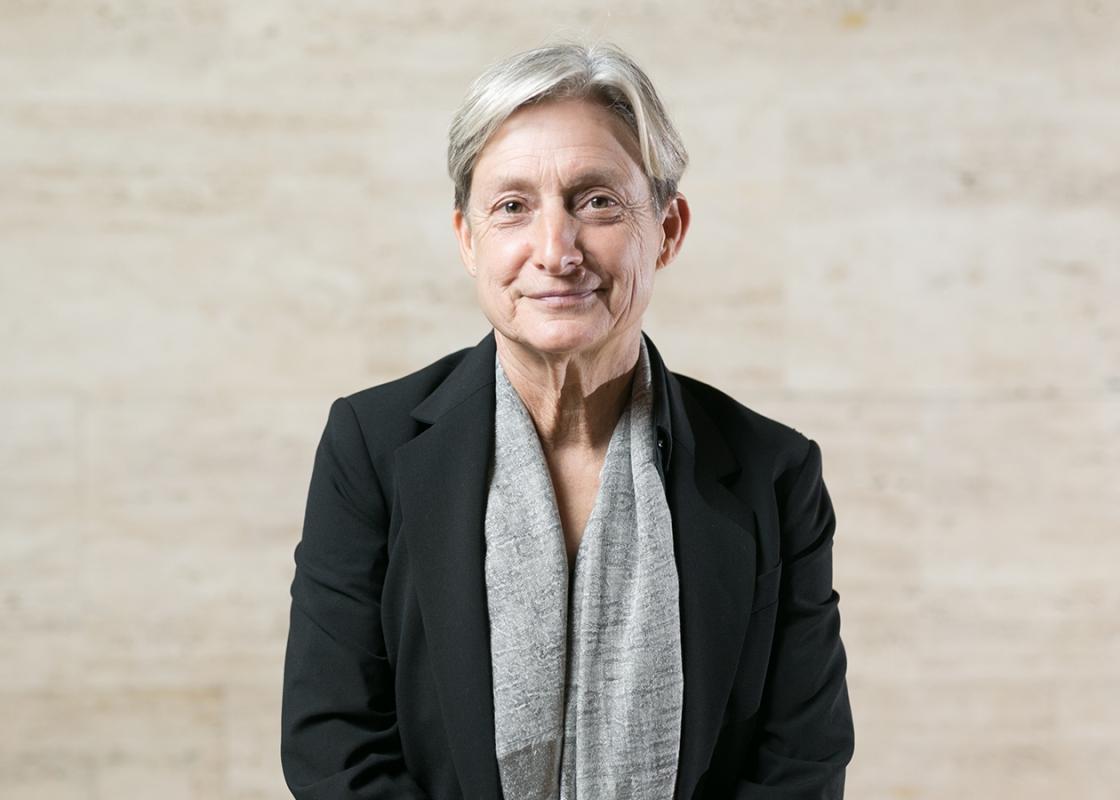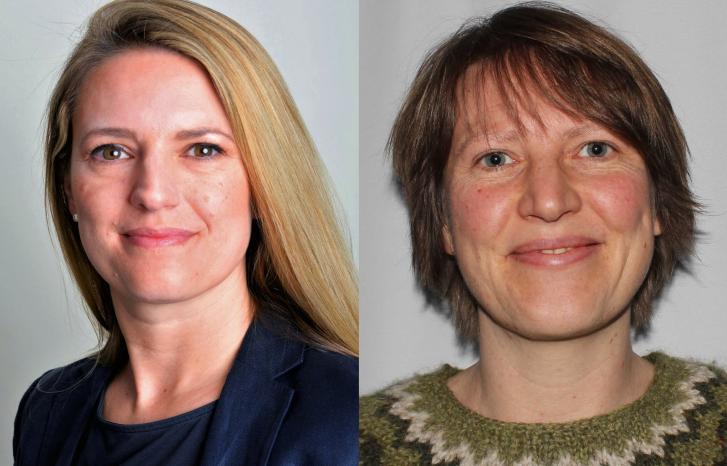“It’s hard to overstate how important Butler has become in the 35 years since Gender Trouble was published,” says Amund Rake Hoffart, postdoctoral fellow at the Centre for Gender Research at the University of Oslo.
The journal Agora: Journal for metafysisk spekulasjon recently published a special issue on the philosopher Judith Butler. Two of the contributors from the field of gender research, Randi Gressgård and Amund Rake Hoffart, describe it, respectively, as ‘long-awaited’ and ‘welcome’.
“I’ve been hoping Agora would publish a special issue on Butler,” writes Randi Gressgård to Kilden’s news magazine:
“Such an important thinker deserves to be more accessible in the Norwegian language, both through translations and literary commentary.”
Dystopian relevance
“This is a thinker with a very broad academic reach,” explains Janicke S. Kaasa, literary scholar and co-editor of the issue.
The aim was to focus attention on a thinker who has had such a broad impact for so long, Kaasa tells Kilden’s news magazine. She moderated a conversation with several of the contributors at an event to mark the launch of the issue in September 2025.
Butler is a philosopher, but doesn’t hide away in their office at UC Berkely. The philosopher has made an impact in public discourse, not only with their theories on gender, but also with their criticism of American foreign policy, as well as being an outspoken critic of Israel’s policies and military action against Palestinians.
Just after the Agora launch party in early September, the news broke that 160 staff and students at Berkely, including Judith Butler, were under investigation for making antisemitic statements. This gives the issue a ‘dystopian relevance’, says Kaasa, something we will get back to later.
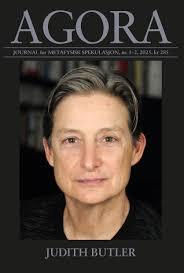
• American philosopher born in 1956, who teaches at UC Berkeley.
• Best known for the book Gender Trouble, published in 1990.
• Most recent book: Who’s afraid of gender?
• In the latest issue of Agora, several of Butler’s articles are available for the first time in Norwegian, translated by Lars Holm-Hansen. Janicke S. Kaasa and Lars Bugge have edited the issue, which features contributions from several Norwegian academics.
• Butler has been a vocal critic of Israel’s military action in Gaza in recent years and its policies towards Palestinians, and is now on a list with 160 others at UC Berkeley who are under investigation for ‘antisemitic statements’. Butler has also criticised Donald Trump, including his presidential declaration that there are only two genders.
“There are few close readings of Butler’s texts in the Scandinavian languages, which may have led to some problematic interpretations"
Students expect Butler on the syllabus
Amund Rake Hoffart is one of the contributors to the issue. He is a postdoctoral fellow at the Centre for Gender Research, where he also teaches.
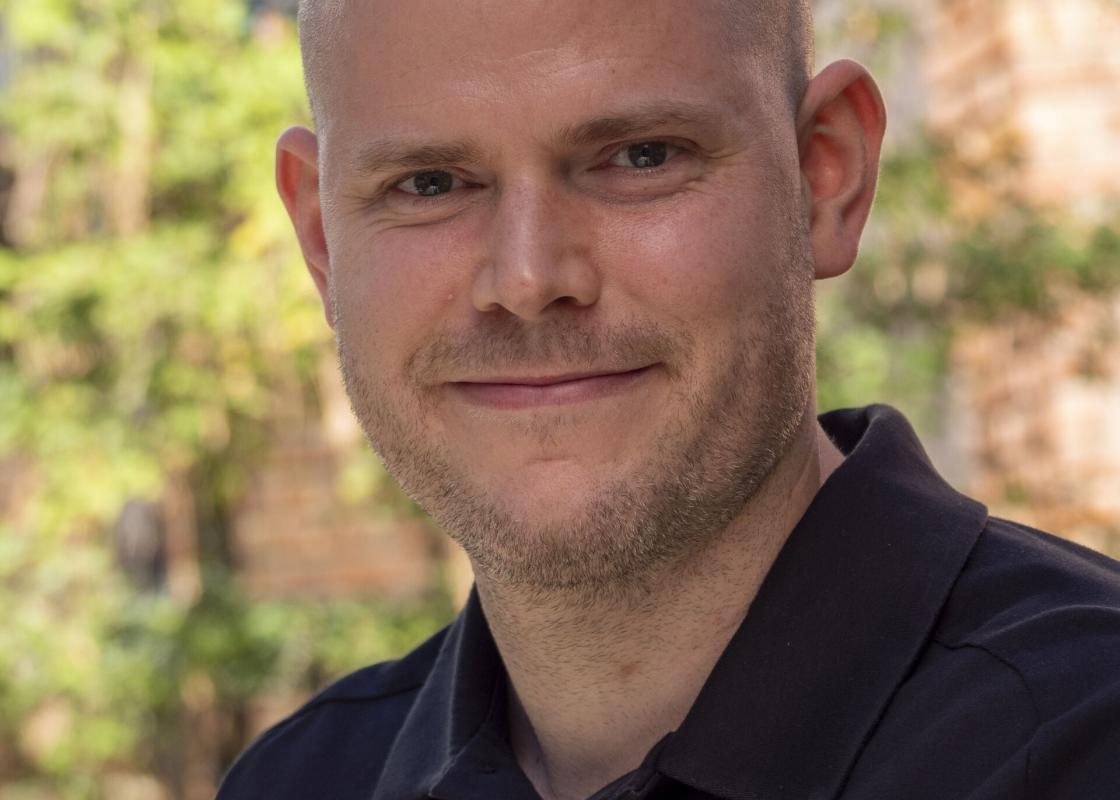
“Students come to class expecting to learn more about this mythical thinker they’ve heard so much about. Butler’s influence extends well beyond academia; they have become an activist symbol – not only in how we think about queer lives, but also in how we all are and become our genders.”
Judith Butler is perhaps best known for their theories on performative gender, and that gender is something you do, following their book Gender Trouble, published in 1990.
Butler is also associated with a convoluted writing style.
“Butler writes in a way that deliberately attempts to challenge not only how we understand gender, but also everyday language.”
It's strategy for disrupting common sense, says Hoffart.
“When Butler writes in a way that can be perceived as difficult and inaccessible, it’s more of a deliberate philosophical strategy than ‘bad writing’. Key parts of Butler’s philosophy break with what we often take for granted, making us realise that something we have thought of as natural and inevitable may actually be different.”
Butler’s deliberate disassociation from everyday language is also one of the reasons why Hoffart does not consider himself a ‘Butlerian’.
“My approach to philosophy of science is quite different. But that doesn’t make me any less interested in Butler’s thinking. Quite the opposite in fact,” he says.
Genus or gender?
Hoffart’s article deals with the reception of Butler in Scandinavia and its impact on the academic discourse on gender.
For instance, the Swedes incorporated the word 'genus'. This should not be attributed to Butler alone, Hoffart emphasises. The debate was already in full swing in Sweden from the 1980s to the 1990s. However, the translation and reception of Butler’s philosophy cemented the distinction between ‘kön’ and ‘genus’, he believes. This distinction mirrors the difference the English language makes between biological ‘sex’ and social ‘gender’, which has not been adopted in Norway or Denmark.
As a result, the research field is called ‘genusforskning’, not ‘kjønnsforskning’ as in Norway and Denmark.
The fact that the concept of genus gained a stronger foothold in Swedish gender research through the reception and translation of Butler’s thinking is a paradox, according to Hoffart.
“Butler's project in their early books on gender was to blur and dissolve the distinction between ‘sex’ and ‘gender’ – biological and social gender. One consequence of introducing the concept of ‘genus’ in Sweden has been that the term ‘kön’, which originally could refer to all aspects of sex and gender, has taken on a distinctly biological connotation.”
Importing a sharp conceptual distinction between biological sex and social gender is at odds with feminist theories in general, he believes. A common thread here, he says, has been to help deconstruct such dichotomies as body and soul, emotions and reason, nature and culture.
He goes on to point out that it is also curious that two countries that are such close neighbours and enjoy extensive academic collaboration have ended up with such different basic terminology for gender.
“When I tell people that I have a PhD in "genus research", not all Norwegian-speaking students understand what I’m talking about.”
“Does that mean that we have actually misunderstood Butler in Scandinavia?”
“No, I wouldn’t put it that generally. But I think that Scandinavian attempts to approach the Anglo-American and develop concepts that consistently distinguish the biological from the socio-cultural, such as the Swedish distinction between ‘kön’ and ‘genus’, don’t make it easier to understand Butler’s thinking on gender. Actually, it can be more of an obstacle.”
Norwegian translation is overdue
“There are few close readings of Butler’s texts in the Scandinavian languages, which may have led to some problematic interpretations,” writes

Randi Gressgård to Kilden’s news magazine.
“Hoffart’s contribution shows how the reception of Butler’s work in Sweden, in particular, has been characterised by appropriation – i.e. many people have ‘used’ Butler for their own purposes, or rejected Butler’s thinking on dubious grounds,” she continues.
Gressgård is a professor at the Centre for Women’s and Gender Research at the University of Bergen. It is important to have a Norwegian vocabulary, the professor explains, especially in teaching contexts.
“Butler’s writing isn’t easy. Though maybe we shouldn’t expect their texts to be easier to understand than those of Lévinas, Derrida, Adorno and other thinkers Butler engages with.”
Gressgård points out that simple language is not the same as plain language, and continues:
“Personally, I find that Butler’s more accessible texts lack the theoretical clarity needed to understand them. They can be as confusing as they are enlightening, like the book Undoing Gender.”
The vulnerable human
Gressgård has written an article for Agora on Butler’s concept of vulnerability. It is a concept first introduced as Butler understands it in the book Excitable Speech from 1997.
“Here we gain insight into what Butler means by linguistic vulnerability. Butler believes that the body's social existence depends on how others use language to define it,” writes Gressgård.
Gressgård explains that the concept of vulnerability and the theory of people’s mutual dependency on each other became the basis for what has been called the ‘ethical turn’ in Butler's writing in the 2000s. Though this does not represent a departure from their earlier work.
“Rather, new perspectives emerge while some old problems are revisited in new ways, allowing the thinking to move in new directions,” she says.
“My analysis highlights how early action theory or theories of performativity – the idea that bodies are both socially exposed and socially shaped – if not directly laying the foundation for the concept of vulnerability, at least help us understand its origins.”
For Butler, it is the mutual dependency between people that forms the basis for political and equal coexistence. But when this dependency is exploited, it becomes hierarchical, Gressgård explains.
Butler is concerned with who is ensured ‘liveable lives’ and which lives are considered ‘grievable’.
“Certain population groups are particularly vulnerable to suffering, injury and death as a result of inadequate material conditions and lack of social recognition. Normative frameworks of social existence allow certain lives or bodies to be expressed legitimately and thus recognised, while others are deprived of social existence,” she writes.
The ghost of McCarthyism
Butler has criticised Israel and Donald Trump on several occasions.
Shortly after Trump was inaugurated as president in January 2025, he declared that there are only two genders in Executive Order 14168. According to the president, the purpose of this declaration was to “protect women from extreme gender ideology”.
Gender ideology is a concept that was first launched in the 1990s as a critical reaction from the Vatican to the UN International Conference on Population and Development in Cairo (1994). Sexual and reproductive rights were a key topic at the conference, and the Vatican envoys were critical of abortion and expressed concern about the future of the nuclear family, which Butler writes about in their latest book, Who's afraid of gender?.
“Butler has become the very symbol of gender ideology and has been attacked both physically and verbally,” says Gressgård.
Since then, the idea that feminists and gender researchers represent a gender ideology has spread to other conservative and radical movements, particularly on the far right. This is also where the so-called international anti-gender movement originated, although it is not a unified organisation.
The book Who's Afraid of Gender?, published in 2024, is a response to the attacks by the far right.
“In this book, Butler describes how authoritarian movements are waging a war against woke and gender ideology in order to deprive minorities of fundamental rights and the opportunity to live lives free from fear and violence.”
A few weeks after Trump's presidential declaration, Judith Butler spoke out in the essay ‘This is wrong’ in the LA review of books, emerging as a prominent critic of the Trump administration.
On September 12th, the news broke that UC Berkeley, where Butler teaches, had informed 160 staff and students that they are on a list of people to be investigated following allegations of antisemitic harassment and discrimination. Professor at Sarah Lawrence College, Joel Swanson, has reacted strongly, partly in light of the fact that Butler has written about their own Jewish identity.
Gressgård describes it as a ‘new McCarthy-style persecution’ of critics.
“Butler has stated that this could have serious consequences, especially for international students, who risk expulsion from the US. Butler risks losing the right to teach and may also face travel restrictions, in addition to increased surveillance and harassment,” she continues.
A joy when you grasp it
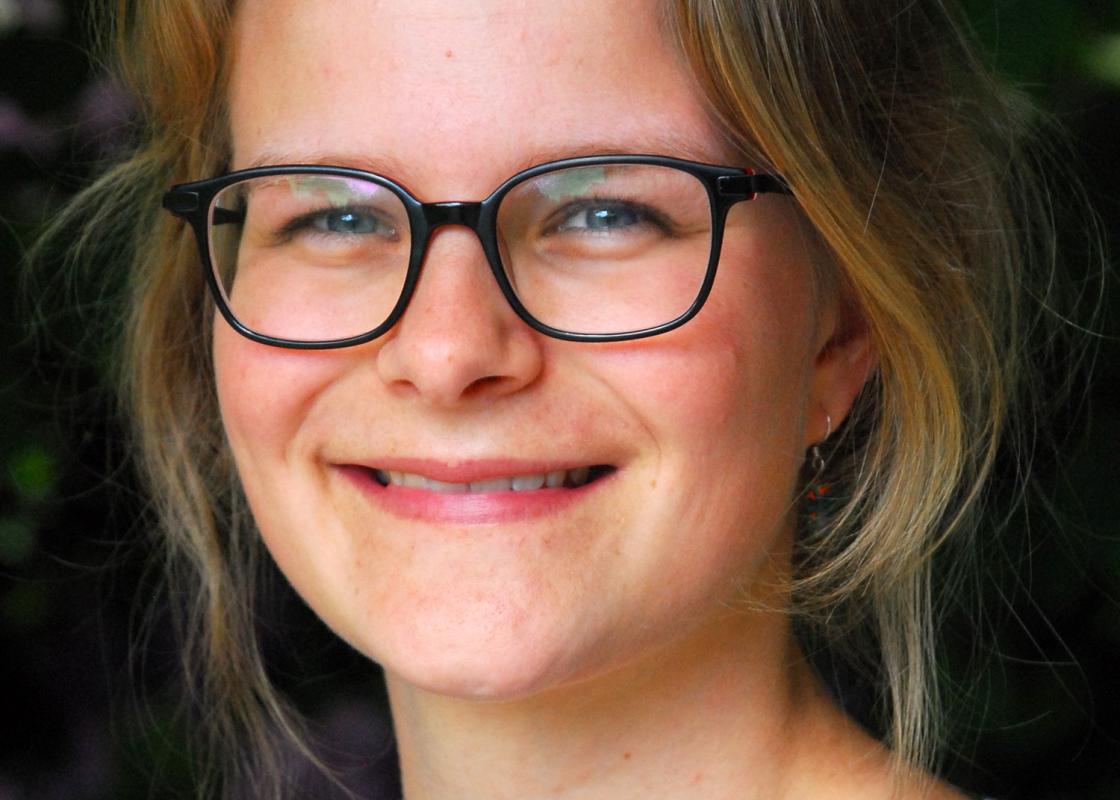
Janicke S. Kaasa has a background in literature, and was most familiar with Butler through work other than Butler’s gender theory.
“My impression from the field of literature, but also from other fields, is that people keep returning to Butler when it comes to relational subjectivity and vulnerability thinking,” says Kaasa.
Gender continues to be at the core of Butler’s writing, gradually encompassing more vulnerable groups in society.
Butler’s critique of power lies in style and language, says Kaasa, pointing out that this is inspired by French theorists.
“It is deliberately convoluted, because it shouldn't be the language that captures, categorises and reproduces Butler’s power categories.”
The fact that Butler is such a public persona may have made them more controversial, says Janicke S. Kaasa. The theories have not been put away in a drawer, but have been actively communicated to the public by Butler, she points out.
“Butler isn’t afraid of bringing the theoretical views into the public arena. But long arguments on a media platform designed for short formats might also have a polarizing effect,” Kaasa speculates.
The convoluted language also makes translation demanding – it quickly becomes entangled, says Kaasa. In the Agora issue, Lars Holm-Hansen has translated three of Butler’s articles into Norwegian.
But it is worth asking whether the difficult language also serves more to obscure, rather than reveal, she says.
In any case, the editor has a clear recommendation for anyone who wants to learn more about Butler: read Agora! The hope is that Agora’s special issue on Butler will serve as an introduction to Butler’s writing. Kaasa certainly learnt more about the philosopher by editing the contributions.
“I haven't understood all Butler’s writing when I've read up on it during editing the journal, but it’s a joy when you do.”
This article was first published in Norwegian. Translated by Totaltekst.
